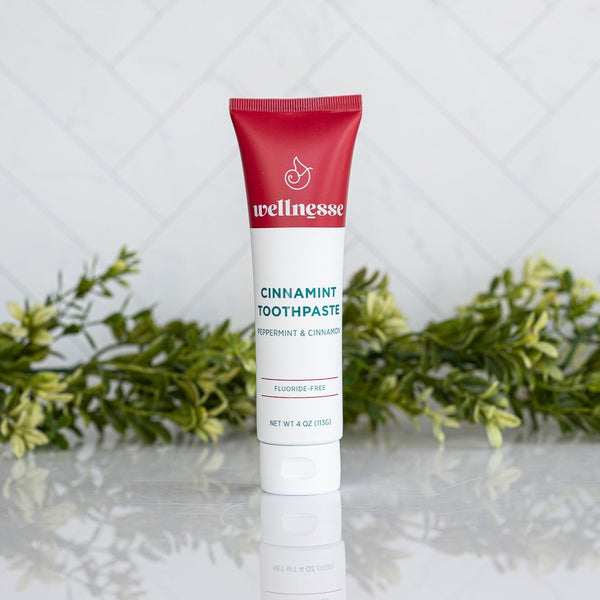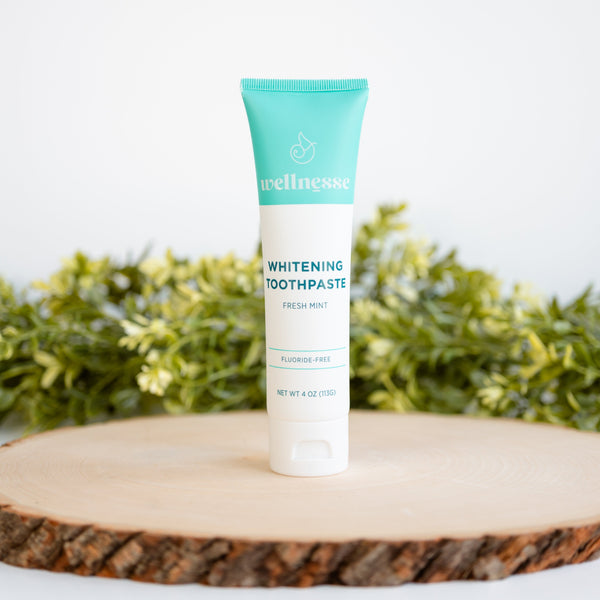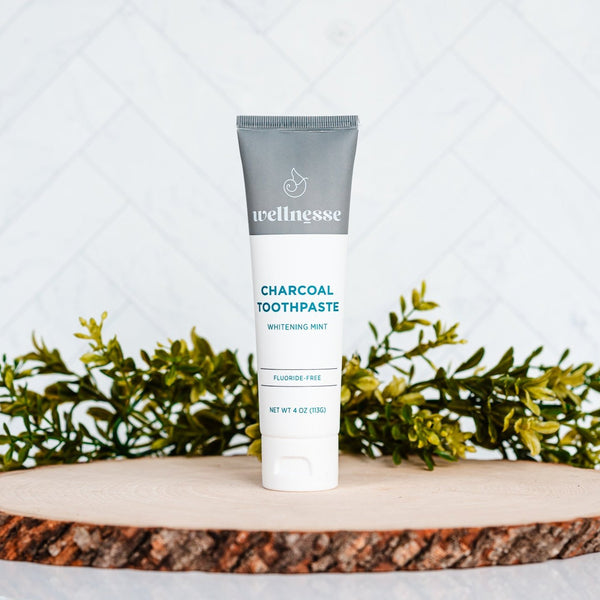This beautiful and fragrant herb is good for more than a bit of bath time aromatherapy. The lavender plant is the definition of flower power. And although it has hundreds of excellent uses, concerns about potential harmful effects still give some people pause. For everything there is to love about lavender, should we be concerned? And is it all it's chalked up to be?
Spoiler: We shouldn't be, and it is! With our Restoring Shampoo, you can enjoy all of lavender's soothing, calming effects now!
Lavender Flower (Lavandula): Origin and Use
Before we get into the controversy (and whether there's anything to it), we need a quick background. In ancient cultures across Europe, Africa, Asia, and India, lavender was the trusted herb for many health conditions. It was (and still is) used for its powerful pain-relieving, antimicrobial, and sedative effects. But there is more to the story; as we said, it was used in hundreds of ways.
Regardless of cultural use, every culture using lavender has understood its profound effects on the body and mind. Let's look at some of those wonderful benefits and then see if they truly come with a double-edged sword.
Benefits
For ages, lavender has been used - and most widely known - for pain relief and sedation. However, it has also shown significant antiseptic and antimicrobial effects, making it a potent medicinal choice for treating wounds and other injuries vulnerable to infections. In ancient Rome, citizens bathed in lavender for antiseptic and relaxing purposes. During World War II, soldiers used it to treat their wounds.
Recent studies reinforce these historical benefits of lavender oil and introduce us to even more.
One of these modern discoveries is that lavender's soothing attributes come from its direct calming effect on the nervous system. This benefit is why people often use it to aid sleep (hence the Romans relaxing in baths). Oddly enough, studies suggest that lavender may even be strong enough to counteract the stimulating effects of caffeine. So for all you afternoon coffee lovers, there's still hope for a good night's sleep!
Lavender also has antidepressant benefits and has shown some promising results for improving mild depression. Studies show that lavender can reduce stress, anxiety, and even postpartum depression. Some women have used lavender in the hospital during and after labor and claimed that it helped stabilize their hormone levels. However, there currently isn't sufficient scientific evidence to support that claim.
To top it all off, studies have shown that using lavender before bed can improve sleep quality, even in those with insomnia. While great sleep is neither instant nor guaranteed, experimenting with lavender is a much lower-risk option for treating your sleep problems than conventional methods or pharmaceuticals. Plus, there are countless ways to introduce lavender into your routine, from skincare to baths to shampoo.
A single herb that helps with pain, bacteria, stress, sleep... Is there a catch?
Controversy: Real or Imagined?
Despite its trusted reputation throughout history, recent health concerns have caused some views on lavender to change.
In recent years, lavender has occasionally been labeled a hormone disruptor, specifically in young boys and men. Although there are many incredible benefits, there has been a growing question about whether it reduces or blocks the production of testosterone, resulting in too little testosterone and too much estrogen.
Testosterone plays a critical role for boys during puberty and men throughout their lifetime. It supports bone health and height, and plays a huge role in fertility. Upsetting that balance during development could result in lifelong harm, including fertility issues and osteoporosis.
So, does lavender actually cause these issues? And if it does, is there a safe way for our boys to use it?
Yes. As we said before, lavender is safe for the entire family.
How? The truth is that studies debunk the claim that lavender essential oil causes estrogenic effects. Even at higher concentrations, topical applications of lavender did not produce estrogenic effects. Plus, most lavender oils come with a dilution protocol (usually involving a carrier oil) that makes the herb even less potent, meaning even those who may be more sensitive to lavender shouldn't have to worry.
Lavender for Healthy Hair Growth
This wonderful herb absorbs quickly into the skin, which is great news for anyone dealing with scalp issues (and lovers of DIY home remedies).
Lavender is an antioxidant with antibacterial and antifungal properties. It deeply cleanses the hair and scalp and can even be a powerful tool against head lice!
Intense anti-inflammatory properties make lavender soothing for the scalp and beneficial for improving blood circulation, combatting hair loss, and preventing breakage. The soothing, calming properties are beneficial for relieving itchy, irritated scalps!
Lavender has also shown profound benefits for new hair growth. Study participants reported that their hair grew thicker and faster while using lavender to aid growth. These results also mean that lavender could help reverse baldness.
Since lavender oil absorbs quickly into the skin, these benefits are delivered rapidly. It won't take long to bolster hair health, especially if you combine it with ingredients that boost its effectiveness.
Our Favorite Lavender Partners
Lavender pairs beautifully with numerous ingredients, but three of our favorites are chamomile, shea butter, and tomato fruit ferment extract (lactobacillus).
Chamomile, like lavender, calms the nervous system, further promoting a good mood and better quality sleep. It aids in reducing inflammation, helps wounds, and reduces both stress and pain as well. Since it is a natural partner to lavender, both are in our shampoo.
Another effective partner for lavender is nourishing shea butter. This trio (lavender, chamomile, and shea) offers dreamy softness and conditioning. Shea butter moisturizes dry hair and delivers vitamins A and E with essential fatty acids, making them more bioavailable. Lavender detoxifies the scalp, preparing it for the benefits provided by shea butter. They help soothe an itchy scalp while granting more shine, softness, and volume.
Last but not least, this trio paves the way for more benefits delivered straight to the hair and scalp by tomato fruit ferment extract. Tomato fruit extract is powerful in clearing out dandruff, dirt, and bacteria on the scalp. Together, lavender and tomato restore hair by supporting the root and scalp health. Tomato fruit ferment extract also helps with color and shine!
How We Use Lavender
Lavender has too many benefits to ignore, which makes it a no-brainer addition to our Restoring Shampoo recipe! Our hair care line uses lavender and other natural ingredients to help you optimize your hair health in ways that no conventional hair care products can. So toss your toxic products! It's time to sit back, take a load off, and enjoy a lavender-filled bath with Wellnesse at your side. You deserve it.
Resources
Kianpour, M., Mansouri, A., Mehrabi, T., & Asghari, G. (2016). Effect of lavender scent inhalation on prevention of stress, anxiety, and depression in the postpartum period. Iranian journal of nursing and midwifery research, 21(2), 197–201. https://doi.org/10.4103/1735-9066.178248
Koulivand, P. H., Khaleghi Ghadiri, M., & Gorji, A. (2013). Lavender and the nervous system. Evidence-based complementary and alternative medicine : eCAM, 2013, 681304. https://doi.org/10.1155/2013/681304
Politano VT, McGinty D, Lewis EM, Hoberman AM, Christian MS, Diener RM, Api AM. Uterotrophic assay of percutaneous lavender oil in immature female rats. Int J Toxicol. 2013 Mar-Apr;32(2):123-9. DOI: 10.1177/1091581812472209. Epub 2013 Jan 28. PMID: 23358464.
Tisserand, R. (2019, December 10). Lavender oil, pregnancy, safety, estrogen, hormone, breast cancer. Retrieved January 18, 2021, from https://roberttisserand.com/2013/02/lavender-oil-is-not-estrogenic/








